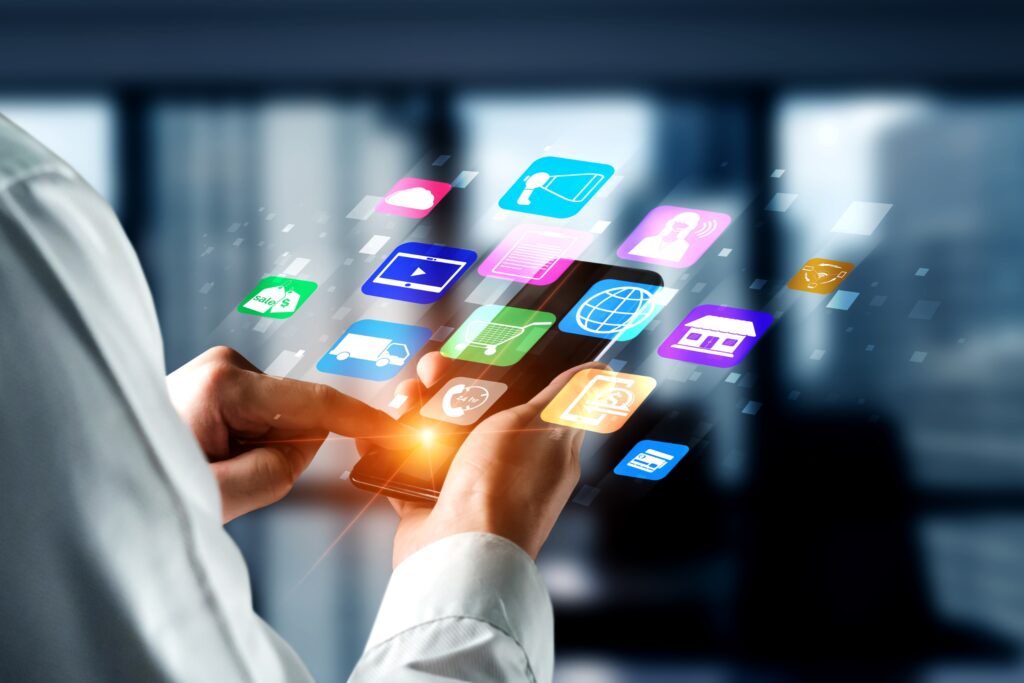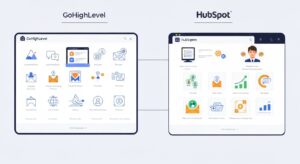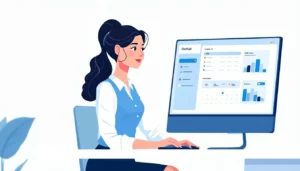The Role of Multi-Channel Communication in Closing Faster

Introduction
There has never been just one way to do sales. Customers can get in touch with businesses in many ways these days, including through emails, social media, text messages, phone calls, and even live chat. It’s no longer enough to only communicate through one medium to build trust or quickly close deals. Instead, agents should meet leads where they are and use a variety of platforms to do so while staying consistent and professional.
CRM multi channel sales become crucial at this point. A customer relationship management (CRM) system that includes multiple channels of contact makes sure that leads are always found, replies are quick, and sales teams can see every interaction. This makes the sales process faster and easier, which boosts both turn rates and customer happiness.
Why Single-Channel Communication Is No Longer Enough
Email used to be the main way employees talked about sales. Email is still useful, but prospects today want faster and more human responses. Using email alone causes delays and leaves agencies open to losing interest. If you miss an email, you might miss a deal, especially if your rivals are calling or texting the same offer.
Today’s customer isn’t always the same. They read on their phones, do study on their computers, and interact on social networks. If a business only uses one medium, the buyer might not see it when they are ready to work with it. It is especially important in fields where time can mean the difference between winning and losing a chance.
According to Salesforce State of Sales, sales teams that do a great job are much more likely to use multiple channels of communication, such as email, phone, texting, and social media. These teams always do better than those that only use one way to talk to each other, showing that variety and being able to change are important for sales success.
How Multi-Channel Communication Accelerates the Sales Cycle
At its core, multichannel communication cuts down on the time it takes to get an answer to a question. When a buyer contacts you, a CRM system records the conversation right away and sets off follow-ups on multiple platforms. When a client fills out a form on a website, they may get a confirmation email and then a text message asking to set up a call. If they use social media, the system will add that information to the records to keep things going.
This method accomplishes two important goals. First, it makes sure that the lead is quickly recognized, which keeps attention high and builds trust. Second, it makes it more likely that you’ll reach the lead on the medium they prefer. A client may reply more quickly to a text message than to an email or phone call. By providing various places of contact, organizations increase the chances of engagement.
This model’s efficiency has a direct effect on the speed of sales. Instead of waiting days for a prospect to respond to a single email, sales teams can connect with them within minutes across multiple platforms. This makes it much more likely that the prospect will buy.
The Role of CRM in Managing Multi-Channel Sales
At a large scale, it’s almost impossible to manage contact across multiple channels by hand. Without a system, relationships break up quickly, with messages being sent to different devices, inboxes, and apps. This lack of coordination causes people to miss chances, do the same things twice, and send mixed messages.
A CRM fixes this issue by putting all information in one place. The system records every email, text, call, and social post. This gives sales reps a complete picture of each prospect’s trip. This not only makes follow-up easier, but it also lets reps tailor their approach because they can see how the buyer has interacted with them before.
Management also gets something good out of it. When managers unify all contact, they can keep an eye on answer times, interest rates, and which methods get the best results. With this data-driven information, companies can improve their plans and make sure that future ads focus on the best platforms.
HubSpot Sales Insights says that multi-channel CRM systems make customers happier and more engaged by making the whole experience smooth across all touchpoints. As a direct result, this means faster deal growth and higher win rates for agents.
The Psychology of Multi-Channel Trust
Prospects are more likely to believe agencies that talk to them in the same way through all of their platforms. One ignored email can make a prospect doubt you, but a quick text message or a professional follow-up call can revive their faith. The range of contacts shows that the firm is paying attention and shows that it wants to build the relationship.
This level of regularity also makes it easier to make decisions. Buyers want to know that they can easily get in touch with the service through any method they choose. When buyers feel like they can trust the conversation, they are more likely to move forward, which leads to faster sales.
Folks feel appreciated when companies work with them on their own terms. A CRM that can handle interactions across multiple media makes sure that everything runs easily. This builds trust, which is important for speeding up deals.
Real-World Example: Closing Deals Faster Through Multi-Channel
A medium-sized marketing company is a great example of how useful it can be to communicate in a number of different ways. Email marketing used to be very important to the company. After getting leads, many of them went cold because people didn’t answer or missed calls. The number of sales stayed the same even though customers said there wasn’t enough follow-up.
When the company got a CRM that could handle more than one medium, it changed the way it did things. Every new lead got a confirmation email and a unique text message right away. After 24 hours, if there was still no answer, the system set up a follow-up call and told the salesperson about it. Questions from social media were also sent to the CRM, so no exchange went ignored.
The firm said that sales went up by 35% in just three months. Clients often said that the agency’s quick response time was one of the reasons they chose them over competitors. The CRM didn’t just make contact easier; it completely changed the experience of the customer, which sped up deals and increased sales.
Data-Driven Insights From Multi-Channel CRM
The huge amount of data that multi-channel CRM systems create is one of their best features that people often forget about. Agencies learn a lot about buyer tastes and patterns by keeping track of how prospects connect with different platforms.
For instance, SMS may be a better way to get people in some businesses to interact with each other, while social media may be a better way to reach people in others. By looking at this data, agencies can put their resources on the routes that work best, which makes them more efficient and cuts down on useless work.
One of the things that Salesforce State of Sales stresses is that data-driven decision-making is a sign of a good sales team. This is made possible by multi-channel CRMs, which let companies keep tweaking their plans to get better results.
This critical skill not only speeds up sales processes, but it also gives you a long-term edge over your competitors. When agencies know which platforms their clients prefer, they can make more targeted and effective marketing efforts that will build better leads in the future.
Preparing for the Future of Sales Communication
As technology changes, using more than one way to talk will become more important. With the help of technology and artificial intelligence, you can now guess which channel a buyer will use and when they will do it. There are already gaps that chatbots and talking AI are filling by responding instantly on websites and social networks.
By getting CRM systems with strong multi-channel features now, agencies are getting ready for this future. Not only will they meet customer needs, but they will also set the standard for creating smooth, tech-driven encounters.
HubSpot says that companies that put digital interaction strategies at the top of their list of priorities keep more customers and see better term value. This means that multichannel CRM adoption isn’t just about closing deals faster; it’s also about building long-lasting ties with clients that help the business grow over time.

Conclusion
When contact is slow, broken up, or limited to one route, sales channels stop moving. In the fast-paced market of today, buyers expect to be able to reach you through email, text, calls, and social media. If agencies don’t give this experience, they could lose business to faster and better rivals.
Agencies that embrace crm multi channel sales set up an organized process to make sure leads are involved right away, regularly, and on the platform they prefer. A multi-channel CRM changes how agencies handle relationships and speed up deals by centralizing contact, automating tasks, and giving insights based on data.
It’s easy to see what the lesson is: speed and variety are better for sales. It’s no longer a choice to use a strong CRM to handle multichannel communication—it’s the key to finishing deals faster, building trust, and ensuring long-term success in a competitive world.







